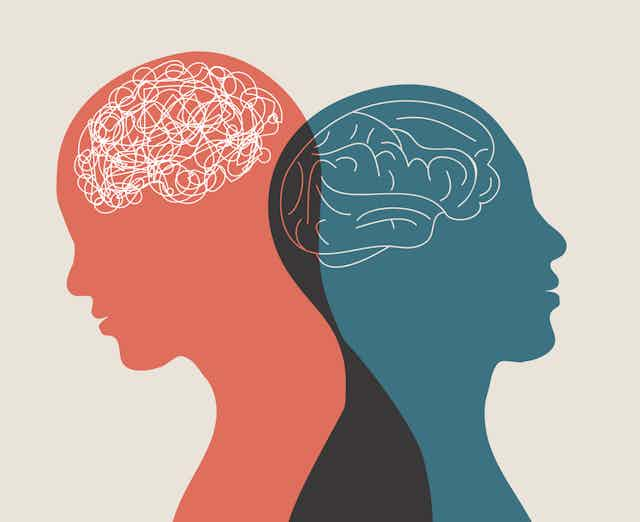Top Reasons to Consult the Best Psychologist in Delhi for Your Emotional Health
Top Reasons to Consult the Best Psychologist in Delhi for Your Emotional Health
Blog Article
Psych Treatment: A Comprehensive Overview to End Results and techniques

Cognitive-Behavioral Treatment
Cognitive-Behavioral Treatment (CBT) is a widely made use of psychotherapeutic method that concentrates on recognizing and modifying useless thinking and actions patterns. Developed in the 1960s by Aaron T. Beck, CBT incorporates behavioral and cognitive theories to address different mental health and wellness issues, consisting of depression, stress and anxiety, and stress-related problems. The premise of CBT is that maladaptive ideas contribute to emotional distress and maladaptive actions. By restructuring these thoughts, individuals can attain considerable improvements in their emotional health and daily performance.
CBT is identified by its organized, ambitious nature. Therapy typically involves a collaborative process in between the therapist and client, where particular issues are determined, and functional approaches are created to resolve them. Strategies such as cognitive restructuring, direct exposure treatment, and skill-building exercises are frequently utilized. Cognitive restructuring involves challenging and altering negative idea patterns, while direct exposure treatment aims to decrease worry and stress and anxiety with gradual direct exposure to been afraid scenarios or things.
Evidence-based research study supports the efficiency of CBT for a vast array of psychological problems - Best Psychologist in Delhi. Its emphasis on ability purchase and self-help techniques encourages clients to proceed development independently after treatment wraps up. The adaptability and efficiency of CBT have made it a keystone in contemporary psychotherapeutic technique
Psychodynamic Methods
Rooted in the very early theories of Sigmund Freud, psychodynamic strategies focus on exploring the unconscious mind and its influence on behavior and feelings. These methods intend to uncover concealed thoughts and sensations that may be driving maladaptive actions and mental distress. Central to this strategy is the idea of internal problem, commonly stemming from unsettled previous experiences, particularly those from youth.
Therapists making use of psychodynamic techniques utilize numerous key techniques, consisting of free organization, where individuals are encouraged to speak easily to disclose subconscious material, and dream analysis, which translates the latent material of desires. In addition, the expedition of transfer and countertransference dynamics within the restorative partnership is essential. These communications can give insights into the client's interior globe and relational patterns.
Psychodynamic treatment is typically longer-term compared to other techniques, using a extensive and deep understanding of the individual's mind. Research study suggests that it can be especially efficient for intricate psychological wellness problems, such as character conditions and persistent depression. By fostering self-awareness and emotional insight, psychodynamic treatment looks for to bring subconscious product to consciousness, allowing individuals to achieve meaningful and lasting modification in their lives.
Humanistic Techniques
Building on the structures laid by psychodynamic strategies, humanistic methods use an unique viewpoint concentrated on individual prospective and self-actualization. Coming from the mid-20th century, these strategies focus on the inherent benefits and growth potential of people, highlighting a holistic view of human experience. Trick figures such as Carl Rogers and Abraham Maslow have dramatically affected this restorative approach, which incorporates techniques like client-centered therapy and Gestalt treatment.
Client-centered therapy, developed by Rogers, plays a crucial function in humanistic techniques. It relies upon the therapist giving an atmosphere of genuine positive respect, empathy, and harmony. This promotes a safe area for clients to discover their feelings and experiences without judgment, promoting self-discovery and personal development. The therapist's function is even more of a facilitator than an authority, motivating customers to harness their inner sources for healing.
Gestalt therapy, an additional important humanistic strategy, highlights existing minute awareness and the assimilation of mind and body. By focusing on the "present moment," customers acquire higher our website understanding into their present feelings and behaviors. Methods such as role-playing and led visualization are frequently used to aid clients get a much deeper understanding of themselves, ultimately resulting in improved self-awareness and gratification.
Integrative Therapies
Integrative therapies represent a synthesis of different restorative strategies tailored to meet the distinct requirements of each customer. This strategy recognizes the intricacy of human psychology and the multifaceted nature of mental health concerns. By incorporating components from different colleges of psychotherapy-- such as cognitive-behavioral therapy (CBT), psychodynamic therapy, and humanistic approaches-- integrative therapies provide discover this info here an even more adaptable and all natural therapy standard.
Experts of integrative treatment analyze each customer's details demands, symptoms, and individual background to devise a customized therapy strategy. This personalized technique improves the capacity for therapeutic success by dealing with the root creates of emotional distress and advertising general well-being. Techniques could consist of mindfulness workouts, cognitive restructuring, and emotional handling, each picked to target different aspects of the client's concerns.
Moreover, integrative treatments highlight the therapeutic relationship, watching the client-therapist bond as an essential element of effective therapy. This connection fosters an encouraging atmosphere where clients really feel safe to discover and address their problems. The versatility of integrative therapies makes them ideal for a broad variety of conditions, consisting of stress and anxiety, clinical depression, trauma, and social difficulties, therefore enhancing their applicability and performance in diverse professional settings.

Gauging Therapy End Results
Assessing the performance of psychotherapy is critical for both customers and medical professionals to make sure that the treatment is producing the desired results. To attain this, various approaches and tools are utilized to gauge therapy results methodically. Standardized evaluation instruments, such as the Beck Depression Inventory (BDI) and the Generalized Stress And Anxiety Problem 7 (GAD-7), offer quantitative information on sign extent and modifications in time.
In addition to standardized tools, qualitative approaches like client self-reports and medical interviews supply useful insights right into the personal experiences and regarded progression of customers. Regularly set up assessments, commonly at the beginning, omphalos, and end of treatment, help in tracking the trajectory of enhancement or determining locations requiring modification.
Result dimension is not limited to sign decrease; it also encompasses useful improvements in day-to-day live, such as better interpersonal connections, raised job productivity, and improved total well-being. Modern innovations in electronic health have presented mobile apps and online platforms that help with real-time monitoring and responses, further fine-tuning the evaluation process.
Eventually, a detailed try this website approach to determining treatment outcomes guarantees that restorative interventions work, reliable, and customized to meet the specific demands of clients, therefore optimizing the general therapeutic experience.
Verdict
Humanistic techniques concentrate on personal development and self-actualization, while integrative treatments combine several approaches for customized therapy strategies. Examining treatment results with qualitative techniques and standardized evaluations guarantees an extensive understanding of efficiency, ultimately guiding clients toward sustaining psychological wellness renovations.
From the organized approach of Cognitive-Behavioral Therapy (CBT) to the deep exploration of the unconscious in psychodynamic treatment, each technique brings distinct advantages. Its emphasis on skill purchase and self-help methods encourages customers to proceed development individually after treatment wraps up (Best Psychologist in Delhi). Secret figures such as Carl Rogers and Abraham Maslow have actually dramatically affected this therapeutic method, which incorporates approaches like client-centered treatment and Gestalt treatment

Report this page